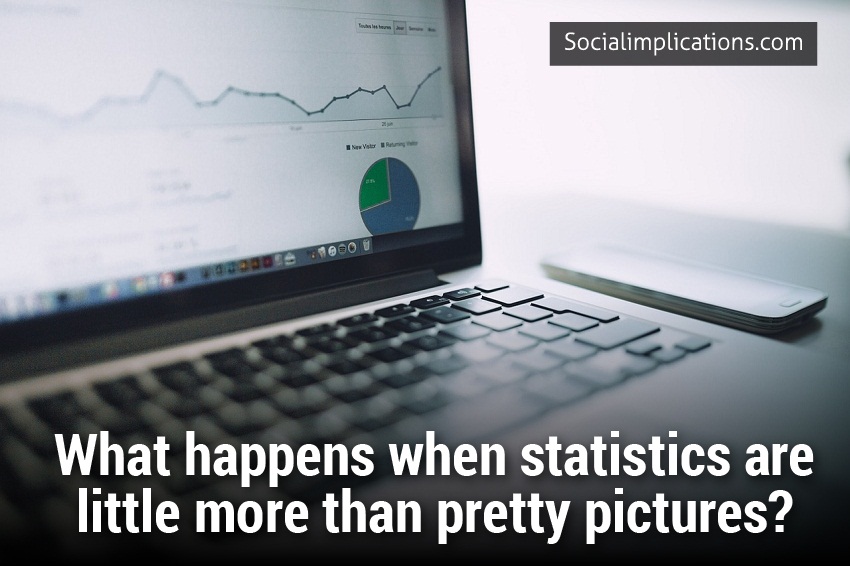Google Plus has created a big splash in the social media scene. What is less obvious is that it may be impacting your blog traffic in ways you’re not even aware of. The trends I’m about to describe might be something to factor into your strategic social media and blogging plans.
From Tweets to Articles: the G+ Hybrid
One unique thing about G+ is that it allows us to send messages just as tersely as on Twitter – and at the same time, allows long, info-rich writing precisely like a dense blog post or even a magazine article. There is no text limit like on Facebook.
Because G+ affords this range of expression, many people are doing exactly that: writing all over the spectrum, mixing brief comments, interactive chat, and thinkish blog posts all right there in their G+ stream.
And that is exactly where your blog and blog traffic might be taking a hit.
Blogging on the Plus
It is very easy to write blog-quality posts on G+, especially if a circle shares your passionate interest in a topic. Circles are a built-in, avid readership. At the same time, this dynamic setting changes where and how people converse. Many posts that would have appeared only on blogs in the first half of 2011, are now popping up all over G+ in any and every subject area. And here we fall into both a blessing and a curse for bloggers and anyone using integrated social media as part of a larger marketing plan:
How do you manage your blog traffic and content if more and more of your “real” conversations are happening at G+, instead of at your blog?
Evolving Questions, Shifting Landscape
Here are some emerging trends I’ve noticed in the interface between G+ and blogging:
1. Easy to start hot topics on G+: circles are highly engaged, targeted audiences.
2. If a blog-quality post sparks conversation at G+, it is very difficult to get it to move over entirely to a blog. People who see the topic in their stream tend to stay inside that social pond.
3. Posting at your blog, and linking to it in your stream, will draw some traffic to the blog – but the engagement level will be far lower than if the whole post were in your stream.
4. If you have a frequent stream presence and engage people with quality content there, with related links to your blog, this can effectively drive a high rate of click-through traffic to the blog.
These interactions mean that it is easy to fall into a split content stream, with some posts generating a life of their own at G+, and the rest of your content behaving normally at your blog. Not only is this difficult to manage, but G+ traffic is completely lost to your potential blog page ranking in search engines
To me, it is starting to look like the best solution is to cultivate engaged conversations at G+, be certain to link to related content at your blog, and to rewrite substantive G+ posts for reuse at your blog. (I say rewrite to avoid the duplicate content hit from Panda in search results.)
This way G+ posts can still improve blog content quality, while it appears (from my own analytics, at least) that the cross-linking can drive surprising bursts of traffic, depending on how widely read your posts become on Google Plus.
What tactics are you using to manage G+ conversations and their interaction with your blog? Please share your thoughts in the comments below.
____
Deborah Teramis Christian is a former information management consultant whose clients have included NASA’s Jet Propulsion Laboratory, Kaiser Permanente, and the City and County of San Francisco. She brings a sociology and marketing background to her analysis of evolving social media systems and issues. She is presently a science fiction novelist and occasional technology consultant. You can read more about her at her website.















Thanks for the post. Your idea is food for thought. Since the Google+ users tend to be techies, I have noticed a lot of very lengthy posts that might normally be posted on a blog.
I have noticed a similar trend with using G+ to promote blog posts, where more detailed postings seem to generate a conversation, but not a lot of link posting gets converted to traffic for the blog. Another thing that I noticed at least with posts that are on the blogger platform is that G+ generates a new permalink with the entire post content in it when you share a link on it. This effectively recreates the entire post with a separate permalink that later shows up (pretty high) on searches, again another split content stream.
Interesting observation, Subhorup. Reproducing the whole blogger post seems problematic to me – duplicating the blog content could have ramifications for page ranking, since Goggle’s search engine factors in the same post content appearing in more than one place. (Duplicate content can mean that one or the other of those pages may be omitted from search results.) What a headache for everyone trying to fine-tune their SEO and page rankings! That post dupe thing does not seem to be happening in the posts I’m making, which are coming from self-hosted WordPress, so maybe that is behavior limited only to Blogger posts. Sounds like one more reason to stay away from Blogger if you’re using a blog for business and want to control how your content is ranking.
My feeling is that Google is going to create an entire world within G+, where you can watch video, play games, watch concerts and all the rest of it, and what’s more. The only things people would link to within G+ that would take them outside is commercial stuff – ie people are more likely to link to a review on a hoover than write a blog post within G+ about a hoover review.
They definitely seem to be on that path. It’s still too early to say if it will ever happen though. They lost a lot of support not long after a successful launch. And they claim they’re not trying to be a Facebook replacement (and that’s pretty much what Facebook seems to try to do — keep user attention spans as internal as possible). It will probably depend a lot on how the business pages do and whether they integrate successfully or become more of a nuisance for personal users who got to know G+ as solely a personal networking tool without the commercial ties. Time will tell.